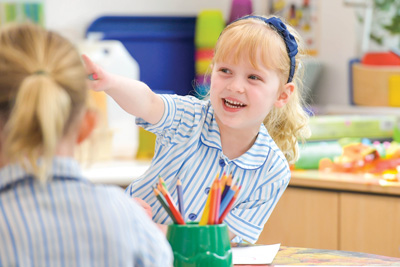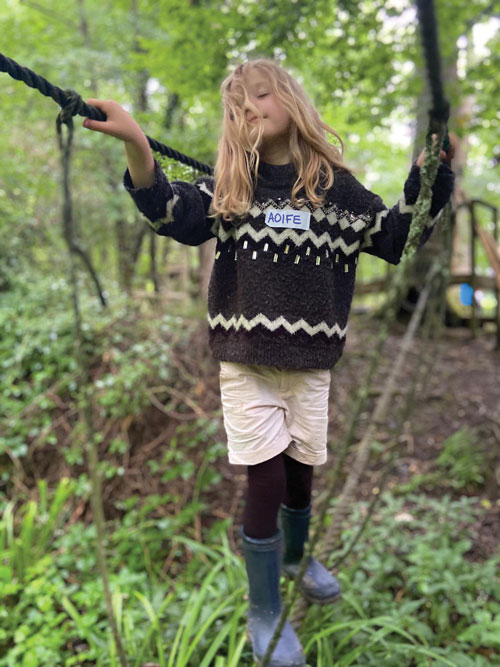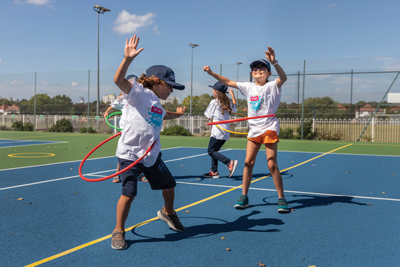
by Dr John Allan
Head of Education at Inspiring Learning, Camp Beaumont
Adventurous play helps children adapt to the challenges of today and to face up to the demands of tomorrow
Learning new skills is fundamental to healthy, human development. Skills come in many forms – from physical movement to reading, writing and listening. Although we all recognise the power of acquiring knowledge, cultivating a child’s sense of purpose and passion must be equal to the importance we place upon their retention of information.
Nurturing an optimum blend of physical, social, cognitive and emotional literacy is most important in childhood. This is where brain growth is most prolific, and a toolkit of skill sets, such as self-awareness, creativity, trust and empathy can be fostered to help children to adapt to the challenges of today and to face up to the demands of tomorrow. We know that youngsters who score high on a combination of psychosocial skills at an early age report better adult outcomes in education, employment, and mental health.
The unpredictable and dynamic nature of adventure-based play makes it an ideal process for the cultivation of skills children require to thrive in an ever-changing world. Outdoor play combines the revitalising, mood-enhancing impact of nature with the adventurous uncertainty of youngsters interacting with each other in non-uniform playful settings without rules and restrictions. Here, children can enjoy exploring their emerging physical capabilities, take turns, co-operate and socialise; finding solutions to new problems in novel ways rather than just sticking to the tried and tested.
Adventure Education is about empowering children to take control of their own learning. This involves educators and parents being responsible without being over-protective so that youngsters are never allowed to wobble, trip, stumble or fall and as a result, miss out on the experience to know what it like to get back up again. Activities which offer some negative emotion, such as feeling unstable in the moment, counterbalanced by positive emotions such as joy, pride and attentiveness underpins a ‘steeling effect’. This helps to inoculate young people to handle more significant risks in the future.
This authentic, experiential approach of ‘learning by doing’ is the foremost guiding principle for facilitating adventurous play. This can take place in school grounds or within an out-of-school adventure camp setting, where a particular focus on specific skill sets can be achieved.
Constructing opportunities for children to be willing to take a path less travelled will make them resilient. Resilience is the learned ability of individuals to ‘bounce-back’ from adversity and ‘bounce-beyond’ their original position to face future testing circumstances with greater capacity. Resilience is recognised in school-based education as an effective policy for developing learners’ wellbeing and academic success.
Having the capacity to share positive resilient experiences with others also suggests resilience may be catching and may be a first step in helping it grow in others.
Resilience
At a time where children have faced unprecedented upheaval and threats to their wellbeing, it has never been more important to create daily opportunities for them to build their resilience. But how is resilience built through adventurous play which can positively impact other avenues of learning? The following ten tips, which collectively spell the word resilience, outline out-of-school camp practices which help build the adaptive capabilities of learners.
R – Rebound and re-invent
A child’s setback in camp can be framed as a lesson to learn and not a failure. This signifies that achievement comes because of stretching oneself by applying continued effort. This allows young people to self-correct and adjust their responses to produce gains from losses. As a result, learners will attribute their learning to themselves, and take pride in their achievements.
E – Energise
Playful experiences without obvious outcomes help to create a resilient ‘growth mindset’, where a fixed, perspective of ‘can’t do’ is replaced by flexible, task-focused ‘can-do’ persistence. This process is strengthened by camp facilitators stressing the importance of children taking small risks in new situations and not predicting negative outcomes.
S – Share
Adventure education often generates group situations that depend on social integration and collective responsibility. Such mutual reliance in testing circumstances necessitate that children balance their own needs with that of their groups.
I – Inquisitiveness
A combination of unfamiliar camp environments with unknown outcomes, provides an ideal breeding ground for children to set their imagination free and develop the fundamental skills of questioning how, what, who, when and why. This search for understanding may be further enhanced with less reliance on mobile technology which has been associated with youngsters vocalising and sharing less, limiting their questioning and failing to recognise the real-life implications of decision-making.
L – Life-enhancing
First-hand experiences combined with reflective practice consolidate children’s learning within and beyond camps. To promote lasting impact, camps should deliver activities with ‘transfer in mind’. Varied events which are responsive to enquiring minds and trigger emotions, such as laughter, incredulity and even mild apprehension, generate learning that can be recalled upon later using diaries, or creative writing.
I – Inclusion
Playful activities which provoke unwanted risk for one child may be seen as an opportunity for growth in another. Supporting learners to make personalised judgements of risk-taking based upon their perception of their abilities enables the growth of self-directed behaviour.
E – Environment
Just five minutes of exercise undertaken in an urban green space may be sufficient to boost a child’s physical and mental wellbeing. Therefore, a combination of active and restorative play in nature (like mindfulness exercises or forest bathing) meet health and wellbeing needs not able to be provided by similar activities (like traditional sports) and become even more powerful when deliberately designed for such purposes.
N – Natural
The authenticity of adventure-based play offers realistic consequences for success and failure. Allowing learners to own their responses to unfolding circumstances, helps them to see the bigger picture, take stock of facts and acknowledge others’ perspectives in becoming prepared for whatever challenges come along.
C – Control
Giving children choices and the autonomy to play and explore in a natural space is a primary mechanism through which they become freely acquainted with their environment, develop natural mapping skills and learn how to distinguish between themselves and others.
E – Emotional intelligence
The ability to manage both your own emotions and understand the emotions of others is a distinct feature of resilience learned through direct exposure to adventurous camp-based learning.
With over 44 years’ experience caring for children, Camp Beaumont run award-winning day camps in over 50 locations across London and the South-East for children aged between 3 and 14 years old. Book our multi-activity day programmes to ensure your child learns new skills, makes new friends and enjoys their most exciting school holiday yet. www.campbeaumont.co.uk

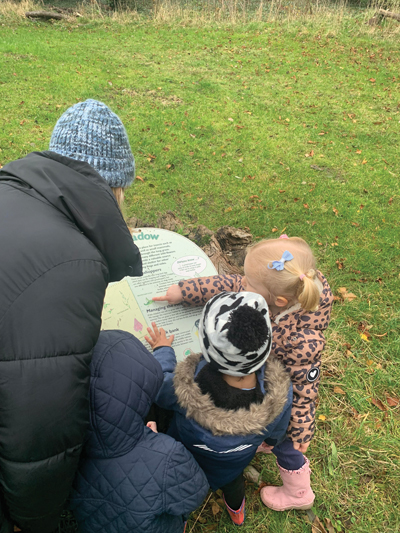
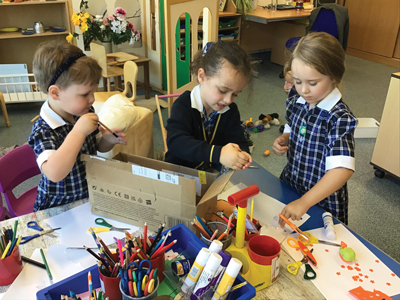


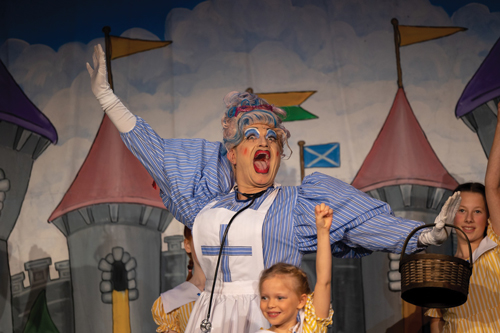
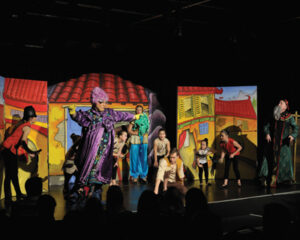 It starts the minute you arrive at the venue. The staff and volunteers all have bright eyes and wide grins that actually look genuine, the café or kiosk is serving Christmas-themed cookies and cupcakes and Christmas pudding flavoured ice-cream. The bar is serving large glasses of everything, including delicious mulled wine. The smell of excited anticipation is everywhere.
It starts the minute you arrive at the venue. The staff and volunteers all have bright eyes and wide grins that actually look genuine, the café or kiosk is serving Christmas-themed cookies and cupcakes and Christmas pudding flavoured ice-cream. The bar is serving large glasses of everything, including delicious mulled wine. The smell of excited anticipation is everywhere.